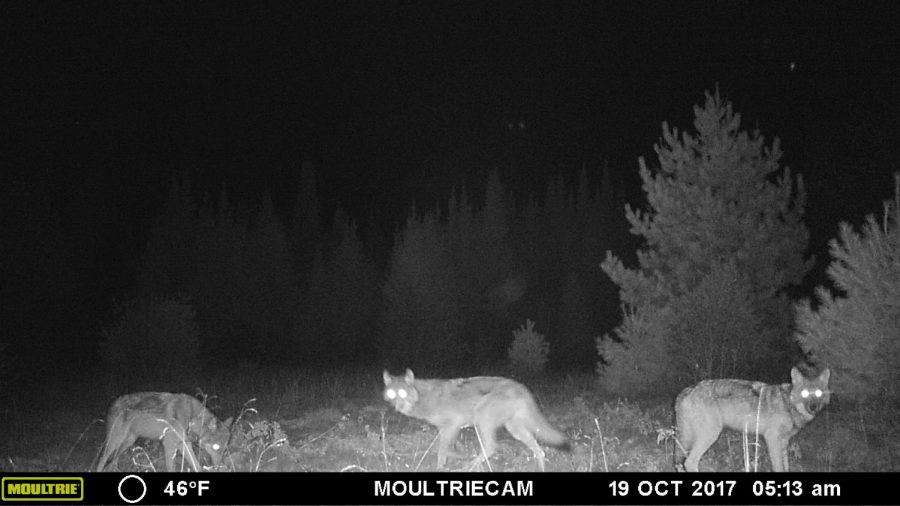The Battle Over Wolves
Government officials trying to delist wolves while anti-hunting groups battle against it
Three wolves in the upper peninsula looking for prey. A hunting season to manage wolves could be coming soon to the Mitten with delisting plans in the works.
Gray wolves are an apex predator, which means they are on the top of the food chain. So why are they a hot topic for hunters in Michigan right now?
According to Wide Open Spaces, acting Secretary of the Interior, David Bernhardt, was expected to announce the plan to lift federal protections for gray wolves across the lower 48 states. This is huge news, because there has been an ongoing debate about whether or not the wolf population is high enough in certain places to need predator hunting. Bernhardt was expected to deliver the news at a wildlife conference in Denver, CO. The plan would be to allow hunting of the apex predator where their species has a healthy population, the areas would be decided by the Department of the Interior and the U.S. Fish and Wildlife Service, and enact different levels of protection where needed.
The gray wolf was added to the endangered species list in 1975 after they were almost hunted to extinction. Their species has made a drastic comeback with the help of reintroduction into certain regions. Recently, Michigan introduced four more gray wolves to Isle Royale to help manage the huge moose population as reported by Fox News. Their species feeds on all sorts of wildlife including deer, elk, moose, small game, etc. due to them being an apex predator. The reintroduction efforts and amount of food explain how they made the quick recovery.
As planned, Bernhardt did announce that the U.S. Fish and Wildlife Service will soon come up with a plan for delisting wolves, returning management to states according to Capital Press. This is good news and bad news for many. For farmers, this is good news. In a statement from Farm Bureau, they stated “the U.S. population of gray wolves far surpasses the recovery targets called for by the Endangered Species Act. Populations have reached critically high numbers in many states – so high, in fact, that wolves are not just preying on livestock, but pushing elk and deer onto U.S. farms and ranches, which leads to even more destruction.” However, many are against the delisting plan. In an article by The New American, environmentalist groups are responding with displeasure. “This proposal by Acting Secretary of the Interior David Bernhardt to remove wolves from the list of endangered species is another egregious example of the Trump administration’s relentless assault on wildlife protections,” President and CEO of Defenders of Wildlife, Jamie Rappaport Clark stated.
Whether it is right or wrong, what does this potential delisting mean for hunting wolves in MI? It is not for certain yet that MI wolves will be delisted. However, if they are, that would mean a hunting season would need to be created to manage the wolf population. The last time there was a wolf hunt in MI was in 2013. MLive reported that the Department of Natural Resources called the hunt a success. The season ran from Nov. 16 to Dec. 31. 1,200 licenses were issued and only 23 wolves were taken out of 43 wolf limit for the three sections in the U.P. during the hunt. This would be a good reference to look at when a management plan is called into action for the state.
These apex predators could be getting removed from the endangered species list soon. Only time will tell whether or not they will be delisted.
Contact Me: [email protected]
This is John's second year on the newspaper staff, but also his last because he is a senior. When John is not writing...












Bruce Barlond • Apr 24, 2019 at 3:03 pm
Excellent and well thought out article!